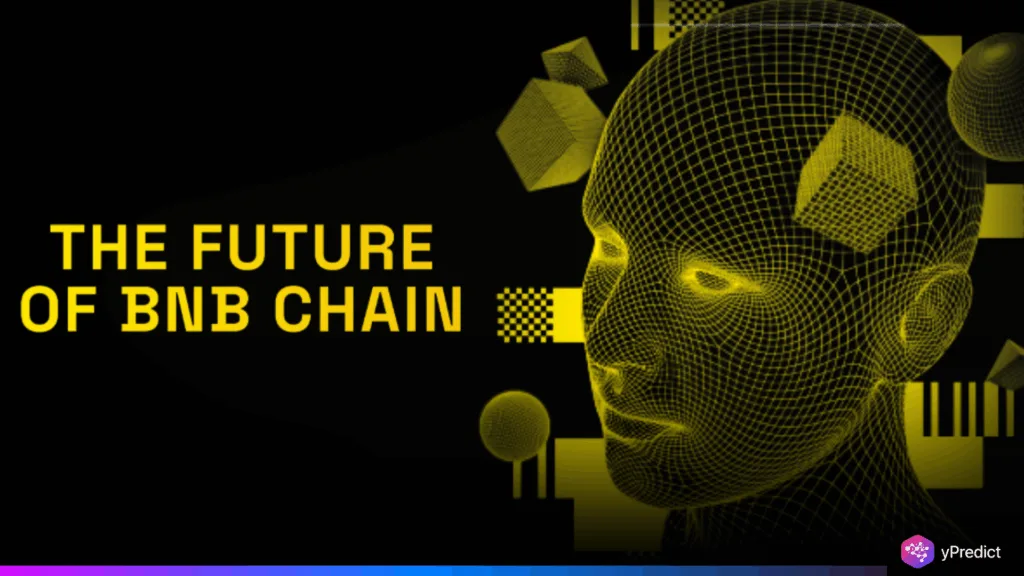
In today’s hyper-connected world, networks are flooded with an endless stream of inputs competing for attention. The challenge is no longer about the lack of data but about deciding which data truly matters. This is where priority becomes the most valuable resource. Without a clear way to determine importance, even the fastest systems can drown in noise. Gridium has introduced a breakthrough in how digital networks operate through a concept called entropy routing. Inspired by Nobel-winning economic theories, this method does more than move information efficiently. It reshapes how a network decides what deserves attention, ensuring that critical, meaningful signals rise above irrelevant chatter.
By applying entropy routing to BNB Chain’s AI layer, Gridium has transformed its responsiveness. The system no longer reacts to every piece of data equally. Instead, it allocates its power toward inputs that carry the most value. This approach ensures that the chain grows along the natural flow of meaning rather than being weighed down by digital clutter.
The Challenge of Infinite Inputs
State-of-the-art blockchain ecosystems like BNB Chain process a staggering amount of transactions, smart contracts, and AI driven computations every second. Scalability solutions prioritize through-put but don’t seriously examine the more profound problem. Not every input or signal is created equal. When you treat every signal as equally urgent or important, you can waste processing power and ultimately slow performance down.
As one can easily imagine, living in an infinitely deep world of inputs requires abilities of prioritization. Each system needs to find a way to identify inputs that were expected to have the largest impacts and divert resources to them. Entropy routing can be very useful, as it can help ignore much of the other noise and help determine what is necessary or not.
Understanding Entropy Routing and Its Nobel Inspiration
Entropy routing borrows ideas from Nobel-recognised work in economics, particularly theories on how systems allocate scarce resources efficiently. Instead of measuring only the volume of data, it evaluates the value of the data relative to the system’s goals.
In practice, this means the AI layer of BNB Chain no longer simply forwards packets of information based on order of arrival. It actively determines which packets are most important and ensures they are processed first. This shift allows the chain to become more purpose-driven, using resources where they create the most meaningful outcomes.
Making the AI Layer Smarter and More Purpose-Driven
The AI Layer functions as the intellect of BNB Chain, making decisions, executing smart contracts and predictive discovery. By using the entropy routing, the AI layer is now more intelligent. It can evaluate what is useful and recognize relevant patterns, and urgent signals, while ignoring the low value data that wastes attention and time.
As such, the AI layer will facilitate increased transactional speeds, reduced processing bottlenecks, and allow the BNB Chain to behave according to real-time requirements (demand). What is more, the AI layer does not respond to noise, it responds to necessity, and understands how what it is doing aligns with the bigger picture for the chain.
Why Prioritisation Shapes the Future of Blockchain AI
In blockchain technology, speed alone is not enough. As AI becomes more embedded in decentralised systems, networks must learn to make intelligent trade-offs. Entropy routing ensures that high-priority actions always take precedence, improving both efficiency and reliability.
For BNB Chain, this is more than a performance upgrade. It is a structural shift that ensures the network evolves in alignment with real-world needs. As meaning drives the growth of the chain, it becomes more resilient, adaptive, and capable of supporting complex AI-driven applications.
The Broader Impact on Decentralised Systems
The effectiveness of entropy routing on BNB Chain’s AI layer illustrates its potential to be widely adopted across decentralised networks. Any system that accepts a large number of mixed-priority inputs can benefit from prioritisation according to meaning.
Entropy routing can enable everything from real-time decisions via AI applications, to reduced latency in financial transactions, and represents the potential for smarter, leaner, and more responsive blockchain ecosystems.
Final Thoughts
Gridium’s integration of entropy routing into BNB Chain’s AI layer is a decisive step forward in blockchain intelligence. By focusing on priority as the scarce resource, the network avoids the inefficiency of treating all data equally.
As blockchain adoption expands, strategies like entropy routing will determine which systems can handle the complexity of tomorrow’s decentralised world. In this race, it is not the network that processes the most data that wins, but the one that processes the right data first.






